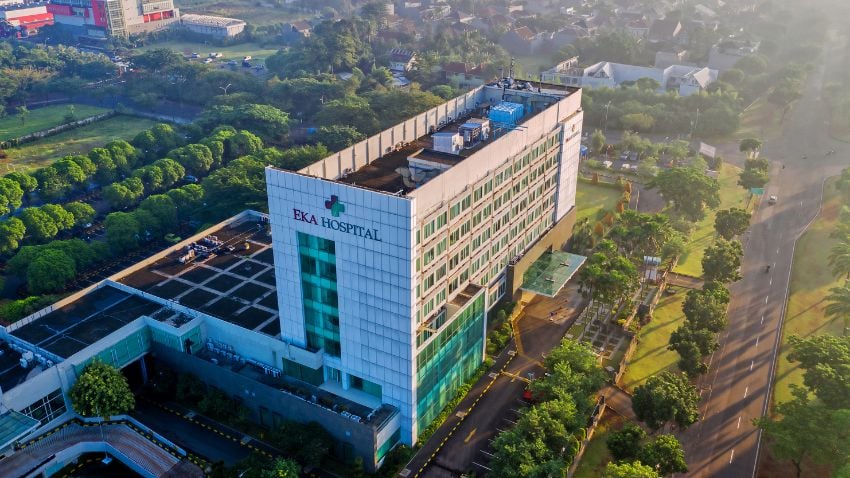How Safe Is Costa Rica?
Costa Rica has become one of the most popular expat and digital nomad destinations in Latin America, known for its natural beauty, relaxed lifestyle,...

8 min read
There has been increased interest from individuals who want to find a way to secure blood from unvaccinated blood donors. Although there is currently no organized manner for people to have a say in this, some companies may step up to offer solutions in this area in the near future.
At the moment, most hospitals are unable to accommodate these specific requests. Moreover, Red Cross has a monopoly over the blood donation market (circa 40%), making it harder for smaller players to move in. Many governments around the world implemented draconian measures, labelled "The Pandemic," to deal with Covid, whether this included lockdowns, vaccination requirements, or other restrictions. The attempt to limit the ability of people to receive unvaccinated blood further adds to these restrictions.
It is common for organizations to restrict people from donating blood after they have been vaccinated or if they have short-term or long-term health conditions. The rise of health issues caused by vaccinations, which are often related to cardiovascular (and hence blood) health, has made people question whether receiving blood from a vaccinated blood donor is safe. Since there are no long-term studies (5-10 years) on how mRNA vaccines can potentially impact blood and the effect a blood transfusion might therefore have on a recipient, it is worthwhile to look into this topic if this concerns you.

The Covid-19 mRNA vaccine has been causing cardiovascular problems in many people.
In traditional vaccines, a piece of the virus, a live non-infectious virus or dead virus, is introduced into the body to stimulate your antibodies. Sometimes there are side effects like symptoms from the disease, but even this is part of obtaining new antibodies with resistance to the virus.
The mRNA vaccine works a little differently. For starters, mRNA stands for “messenger RNA.” An mRNA vaccine introduces the recipe for the creation of specific proteins. The protein recipe is picked up by your arm cells which start producing the protein, triggering an antibody response. This is how it is supposed to work, and once your antibodies have fought the virus's protein, you create an immunity toward it.
These types of vaccines have the same ultimate goal of bettering your immune system, with little to no side effects. However, the mRNA vaccine data shows us alarming side effects.
There have been documented issues with mRNA vaccines by experts and other vaccines since 2021, and many people are worried about some of the long-term, unknown health risks associated with them.
Some of these vaccines have caused blood clots, which has made individuals hesitant to get these vaccines. The risk of myocarditis following a Covid vaccine has been well documented and typically occurs among younger individuals after the second dose. Other studies have linked Covid mRNA vaccines with various neurological conditions, including Bell’s Palsy.
Some studies have focused on how Covid vaccines can cause health issues related to blood health. A peer-reviewed study in Italy found that 94% of people had side effects after taking an mRNA vaccine and reported abnormal blood for one month after vaccination. Some Covid vaccines can cause Thrombotic thrombocytopenic purpura (TTP), which causes blood clotting. There have also been rare instances of Vaccine-induced immune thrombotic thrombocytopenia, which can cause easier bruising and bleeding.
Another NCBI study found that people vaccinated against Covid have higher blood viscosity levels after vaccination. These higher levels could cause health issues for people with underlying medical problems, such as metabolic issues. Higher blood viscosity levels are associated with multiple health conditions, including cardiovascular diseases, and can cause sluggish blood flow.
Given that these vaccine-induced health issues are related to blood and heart health, many people are now concerned with safety, and receiving blood from someone recently vaccinated may be dangerous. In one case, a mother blamed the death of her one-month-old child on a blood transfusion from a vaccinated blood donor.
What is most troublesome is that the typical timeline for developing a vaccine is around 5 to 10 years. Many people are worried about these vaccines and that there may be unknown long-term health effects. This is not to mention that the Covid vaccine was the first mRNA vaccine ever introduced on a mass scale like this. However, scientists have been researching mRNA vaccines since the 1960-70s and have only now begun creating mRNA vaccines to be widely used by humans.

Mexico is one of the countries where you can find safeblood
It is very common for hospitals not to allow people to donate blood because of recent travel, underlying health conditions, or other reasons. Some reasons why people can’t donate blood already include the following:
Vaccine mRNA can be detected in someone’s blood 15 days after vaccination, so it makes sense for organizations to organize blood donations by vaccination status. However, this may be difficult in countries like the United States, where only 17% of the adult population is unvaccinated.

Building trust between doctors and patients.
Many claims from health officials about mRNA vaccines turned out to be false, including the CDC’s claim that vaccinated people do not carry the virus or get sick. Many people who took the vaccine, whether it was their personal choice or the result of mandates, believed they would not get Covid, spread covid, or become hospitalized if vaccinated. Just a bunch of misinformation used to get people to get vaccinated.
As of August 2022, around 58% of Covid deaths in the United States occurred in vaccinated and boosted individuals, while the vaccinated population represents 69% of the population. These numbers are still alarming, even though vaccinated people make up a higher percentage of the population, as vaccines were initially designed to prevent infection and hospitalization.
Many institutions are not diligently addressing issues based on confirmed cases with the vaccine and the unknown long-term risks. This has naturally eroded trust in the media, politicians, and health institutions. Many people are beginning to question the real long-term risks of vaccines and the dangers of receiving blood from a vaccinated individual. This hesitation is understandable, as the Red Cross and other organizations restrict blood donations from people with health issues, who are on certain medications, and even recently vaccinated people.
Related Article: Helping Unvaxxed Canadians Escape The Country

Safeblood donations in Italy are not typically made in hospitals or clinics.
Although some people are working on solutions now, individuals cannot request blood from an unvaccinated donor in most cases. Some people in the United States may be able to try to do this, but hospitals may not always honour this. Furthermore, this may be possible in some African countries but much more difficult in other parts of the world, like Europe. Nothing is guaranteed in any country or hospital; it is sometimes impossible to receive an answer from hospitals if you inquire beforehand. Some cases in the news have shown that hospitals have refused to accommodate these requests during urgent cases where someone needed blood immediately. Private sector solutions may emerge if hospitals or clinics are unwilling to step up.
SafeBlood Donation was founded by a Swiss naturopath with the objective of helping people to have access to blood from people who have not received a Covid vaccination. The company began targeting 16 countries but has since expanded its aim due to soaring demand. The company is now targeting over 40 countries in South America, North America, Asia, Europe, and Africa. SafeBlood encourages hospitals to allow directed donations in cases where a blood transfusion is medically necessary. At the moment, you cannot specifically request blood from an unvaccinated donor, even though this blood could pose health risks.
Listed below are the countries and states currently working with SafeBlood and with links to help anyone interested in securing a residency or citizenship in the country:
SafeBlood is setting up a team to work with hospitals in various countries to see if they are willing to offer these services. Furthermore, it will create a portal on its website for hospitals willing to cooperate with SafeBlood. American states that are more libertarian, like Florida and Texas, may be more open to these services. While some countries are open to doing this, there are currently no solutions in most other countries. The most evident options currently are select African countries, Mexico, and certain states in the United States of America.
Related content: 12 Best Places For Medical Tourism

Finding unvaccinated blood could be difficult in Canada and the USA.
Currently, it is nearly impossible to request unvaccinated blood from hospitals. The only places that seem open to this concept include the State of Texas and various parts of Africa. However, SafeBlood is working on establishing operations in Asia, Europe, Latin America, and North America. The company will cooperate with hospitals and clinics or independently arrange blood donations.
Related article: Which Countries Allow Unvaxxed Travellers Into Their Borders

SafeBlood is based in Switzerland and was founded by a Swiss naturopath
Each country has different legal structures and openness to this concept, and only a few countries will initially be open to this option. If you are researching this topic, it is best to continue following SafeBlood and to check with local hospitals in your country if you can. You can also use SafeBlood’s online portal and create your own living will online so that you will be ready to contact hospitals in the future if you need unvaccinated blood. We will update this blog post as we hear more news. In extreme cases, patients may travel to other countries for blood transfusions if the option is unavailable in their home country. There may be options available in nearby countries if you have trouble finding safe blood near you.
If you want the best intel from the expat world, including profitable offshore opportunities, little-known tax-saving strategies, and hard-won insights on immigration, passports, and Plan-B residencies, all delivered to your inbox every single week, then join our daily correspondence, EMS Pulse®. Currently enjoyed by over 84,000 expats and expat-hopefuls worldwide. Fill in the form below to join our newsletter free:

Written by Mikkel Thorup
Mikkel Thorup is the world’s most sought-after expat consultant. He focuses on helping high-net-worth private clients to legally mitigate tax liabilities, obtain a second residency and citizenship, and assemble a portfolio of foreign investments including international real estate, timber plantations, agricultural land and other hard-money tangible assets. Mikkel is the Founder and CEO at Expat Money®, a private consulting firm started in 2017. He hosts the popular weekly podcast, the Expat Money Show, and wrote the definitive #1-Best Selling book Expat Secrets - How To Pay Zero Taxes, Live Overseas And Make Giant Piles Of Money, and his second book: Expats Guide On Moving To Mexico.

Costa Rica has become one of the most popular expat and digital nomad destinations in Latin America, known for its natural beauty, relaxed lifestyle,...

Mexico remains one of Latin America’s most compelling destinations, especially for North Americans. More than a million expats call it home, and tens...

South Korea is far more than K-pop and K-dramas. It is a country known for outstanding food, from bustling street markets to high-end dining, as well...